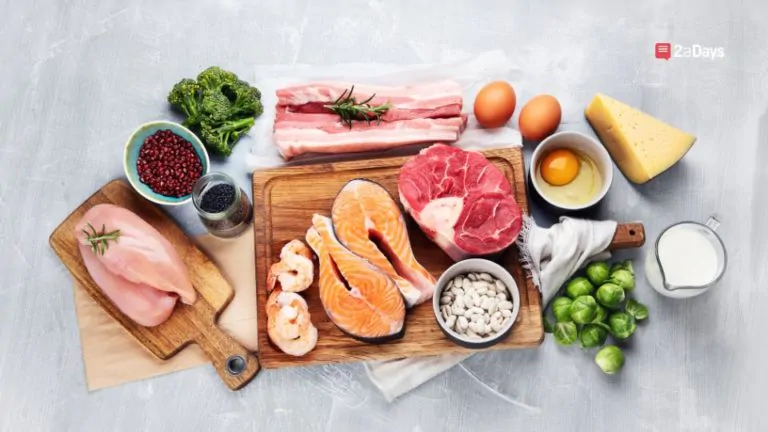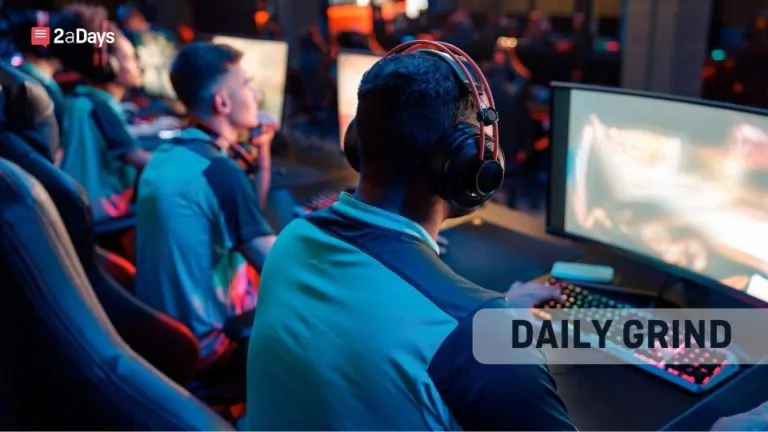Protein is a macronutrient that needs little introduction. By now, you probably know that it is an important part of your diet, especially as an athlete. You also most likely know that you need to be eating an adequate amount of it and that there is an overwhelming variety of high-protein products to choose from.
But, do you know what protein does for your body? WHY you need it? Do you know how much you actually need to consume? What about the sources you are getting your protein from: Are they quality sources that provide the full spectrum of amino acids, or are they missing a few? Is your choice of protein highly processed?
Related: Nutrition for Athletes: Overview
What is Protein?
Protein is another macronutrient that the body needs to function properly. It is what makes up the building blocks of life. It is found in every cell of the body, from muscle to bone, skin to hair, and every other body part and tissue, to the blood within.
Protein is made up of 20 different types of amino acids, 11 of which are either produced by the body from scratch or through modifying already present amino acids. However, there are 9 amino acids that the body cannot produce. These amino acids must be obtained through the consumption of food and are referred to as the essential amino acids: isoleucine, leucine, lysine, methionine, phenylalanine, threonine, valine, histidine, and tryptophan (yes, the same chemical that makes you sleepy after a big Thanksgiving meal).
Related: Carbohydrates: What They Are and Why Athletes Need Them
All amino acids are connected to one another through long, variable chains to make up proteins. The different sequences of these chains provide the necessary information to determine the job of that chain. Some roles include helping to make new cells (i.e. blood cells), repairing existing cells, protecting the body from bacteria and viruses through immune responses, promoting muscle growth, and strengthening muscle mass.
Why Do You Need Protein?
As a student-athlete, you are putting stress on the muscles in your body during fitness training. This stress causes minuscule tears in the muscles. Through a process referred to as muscle synthesis, your muscles become stronger and increase in muscle mass during the repair process. For this process to occur seamlessly – you guessed it – adequate protein is necessary. With increases in muscle mass and strength, the body will be able to continue improving through different motions and weight loads over time. This is extremely important when a student-athlete aims for muscular gains and movement patterns from the gym to the field, court, track, or pool.
Eating an optimal amount of protein will also decrease the risk of excess muscle breakdown that can occur when the body utilizes protein for fuel instead of carbohydrates and fats. This is not something that student-athletes want to occur as their bodies' main fuel source should be carbohydrates and fats. When the body uses protein for fuel, there is not enough to repair and rebuild the broken-down muscle and body tissue. If your muscles begin to break down, your performance will be affected.
Finally, remember all the different jobs of those amino acid chains? Protein is necessary in every function in the body. A diet deficient in protein can lead to many other health concerns such as edema (swelling of the body's tissues), thinning hair, decreased heart and lung function, and a weakened immune response.
Related: Fueling Your Body for Performance
Complete vs Incomplete Protein Sources
Protein comes from many sources. Before we look at the different sources, we need to understand that protein sources are not all equal. Our protein sources can be broken down into Complete proteins and Incomplete proteins.
Complete or “pure” proteins are foods that contain all the essential amino acids that the body cannot make or synthesize. Complete proteins are typically animal-based, but there is an exception in some plant proteins such as Quinoa, Chia seeds, and soy products (tofu and edamame).
Incomplete proteins are sources of food that do not provide all 9 essential amino acids, but instead contain only a few of them. These sources are usually plant-based. For individuals that follow a plant-based diet, you will need to take special consideration to ensure that you are getting the nine essential amino acids.
Quality Matters When Choosing a Protein Source
Another point to consider when choosing protein sources is the quality of the source. The quality of proteins refers to how processed it is. There are many protein sources out there that have been heavily processed, thus stripping them of some of their protein content while adding in sodium, fats, and carbohydrates. Some low-quality protein sources would be hot dogs, chicken nuggets, deli meats, protein bars, and even some protein powders.
High-quality protein sources are those in their most natural state, such as eggs, ribeye steaks, chicken breast, and fresh salmon. You can also find some protein powders and supplements that are high in quality.
It is very important if you use protein powders or supplements to make sure you do your research so you do not find yourself using a powder or supplement that skimps on quality ingredients.
You should also consider the protein package when looking at protein sources. The protein package is the combination of protein with fats, sodium, and carbohydrates that are present in the source. For example: a 4-oz sirloin steak contains 33 grams of protein and 5 grams of saturated fat. When the steak is cooked, more fat and even sodium is added. These packaged nutrients need to be considered, especially when you're timing protein consumption around training and games.
Protein Sources
Complete Proteins
- Red meat
- Poultry
- Pork
- Fish
- Eggs
- Dairy
- Quinoa
- Buckwheat
- Hempseed
- Whole sources of soy (edamame, tofu, tempeh)
Incomplete Proteins
- Legumes (beans, peas, lentils)
- Nuts
- Seeds
- Whole grains
- Vegetables
How Many Grams of Protein Do You Need?
While it is true that student-athletes need more protein in their diets than non-athletes, it is not as much as most people think. The Academy of Nutrition and Dietetics, Dietitians of Canada, and the American College of Sports Medicine all recommend 1.2 to 2.0 grams of protein per kilogram of body weight per day for athletes, depending on training intensity. Some days, the student-athlete may find they want slightly more protein if they have had a more intense day of training or games.
To provide further guidance on optimal protein intake, we will break down the amount needed for the different type of athletes:
- Endurance Athletes: 1.2-1.4 grams per kilogram (2.2lbs) of body weight per day
- Strength Training Athletes: 1.4-2.0 grams per kilogram (2.2lbs) of body weight per day
The following equation will help determine the amount of protein a student-athlete needs to intake:
*Weight in kg x protein intake in g/kg = daily protein intake
*to find your weight in kg, divide bodyweight in lbs/2.2
Example: Calculate the proper protein intake for a student-athlete that weighs 120 lbs. You calculate their weight to be 54.55 kg. Multiply 54.55kg by 1.2 grams of protein = 65 grams of protein.
This number is just the minimum, but you may find that your body feels and functions better at the higher end of the spectrum above. Every body is different, so everyone should expect to have different needs.
Protein Timing
Protein should be integrated into most meals throughout the day. Protein does not need to be eaten before or during activities, but rather after completing training or competitions. The goal should be to eat at least 10 grams of high-quality protein within 30 minutes after training or a competition. Then, you should aim to eat a well-balanced meal within 2 hours to provide the nutrients necessary for muscle repair and growth.
* Originally published on December 8, 2021, by Rebecca Lutz







